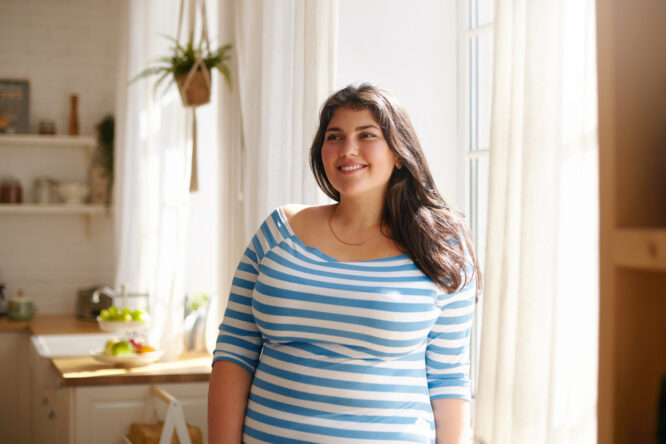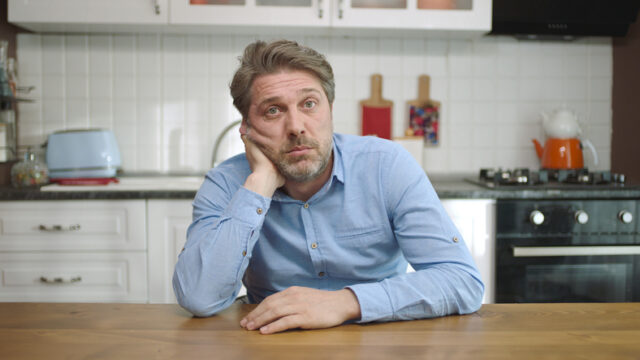Soft living might sound like a synonym for being lazy or disengaged, but that’s not true at all.
 Source: Unsplash
Source: Unsplash Instead, it has to do with choosing peace, pleasure, and intentional ease over constant hustle. After all, chasing money and constant productivity might buy you material things, but it doesn’t do much for your mental or physical health, that’s for sure. Here’s how people are embracing slow living as a real viable alternative to the grind, and what it actually looks like day to day.
1. You give yourself permission to slow down.

At the heart of soft living is the decision to stop rushing. That means allowing tasks to take a little longer, moving at your own pace, and refusing to tie your worth to productivity. It’s not about doing nothing; it’s about doing things in a much more relaxed way.
That change can be surprisingly hard, especially if you’ve internalised the pressure to always be “on.” Of course, slowing down doesn’t mean falling behind. It really means aligning with your own rhythm instead of constantly reacting to urgency.
2. You make comfort part of your daily routine.

Soft living isn’t just a vibe—it’s physical, too. That might mean wearing clothes that feel good on your skin, using lighting that soothes you, or filling your space with sounds and scents that calm your nervous system. It’s the opposite of pushing through discomfort for the sake of appearances. You create an environment where your body feels safe and relaxed, which has a ripple effect on your mood, your energy, and how you show up for yourself.
3. You stop glorifying burnout.

In a hustle-driven world, exhaustion is often worn like a badge of honour. Soft living rejects that. It doesn’t see tiredness as a sign of success—it sees it as a warning light. You rest before you’re forced to. That mindset takes time to unlearn, especially if you’ve been praised for your stamina. However, soft living reminds you that a well-rested version of you is more present, more creative, and more connected than the one running on fumes.
4. You choose ease over obligation wherever you can.

Soft living is about pausing to ask, “Is this necessary, or just expected?” It encourages you to question routines, habits, and commitments that don’t align with your values. If something feels draining or pointless, you don’t force it. That doesn’t mean becoming careless. It means being intentional. You learn to spot what’s performative versus what’s meaningful, and you begin designing a life that prioritises what genuinely feels good to you, not what looks good to other people.
5. You learn to say no without overexplaining.

Part of soft living is protecting your energy, and that often means declining invitations, requests, or demands that feel too heavy. Instead of scrambling to justify your no, you trust that your boundaries are enough. It takes practice, especially if you’re used to people-pleasing. After a while, though, saying no becomes less about guilt and more about self-trust. You know that choosing rest, space, or silence is sometimes the kindest thing you can do for yourself.
6. You romanticise the small stuff on purpose.

Soft living encourages you to find magic in the mundane. That might mean playing music while you clean, making your morning coffee feel like a ritual, or treating a walk around the block like an intentional reset.
You don’t need to be unrealistic in your expectations. Instead, your focus is on infusing your life with quiet joy wherever you can. Doing so helps you stay present instead of always chasing the next big thing. It reminds you that your life isn’t waiting to start—it’s happening now.
7. You stop tying self-worth to your income or title.

In a soft life, your job is just one part of you, not your entire identity. You no longer chase status or measure your success based on how busy you are or how impressive your role sounds on paper. Instead, you focus on how your life feels. Do you have peace? Freedom? Time to breathe? These become your new markers of success. You define worthiness through being, not just achieving, and that change can feel like a deep exhale.
8. You build routines that regulate your nervous system.

Rather than pushing through stress, soft living involves actively creating habits that ground you. That could be morning movement, breathwork, journaling, or anything that helps you feel safe in your body and mind. It’s not about having a perfect wellness routine. It’s about tuning in and asking, “What helps me feel okay?” Then doing that regularly, not just when things fall apart. That consistency helps build emotional stability in the long run.
9. You stop engaging in conversations that drain you.

Soft living means being mindful of where your energy goes, including in social spaces. Whether it’s gossip, arguments, or just too much small talk, you give yourself permission to disengage without guilt. That doesn’t make you cold; it makes you self-aware. You don’t owe anyone constant access, especially if the conversation leaves you feeling tense or unseen. You protect your peace not through silence, but through choice.
10. You focus more on how things feel than how they look.

Soft living isn’t performative. It’s not about curating a perfect aesthetic or having the “right” objects in your home. It’s about building a life that feels gentle, no matter how it appears from the outside. That change helps you stop chasing perfection and start choosing alignment. You don’t decorate for social media; you decorate so that your space feels like a warm exhale. That subtle difference changes everything.
11. You stop rushing healing, growth, or change.
 Source: Unsplash
Source: Unsplash Soft living holds space for the in-between moments—the ones that feel slow, confusing, or unresolved. Instead of pushing through discomfort, you allow yourself to sit with it. Growth doesn’t have to be rushed to be real. Patience becomes part of your lifestyle. You don’t demand clarity before it’s ready. You trust that taking care of yourself during the process matters just as much as getting to the end of it. That softness often leads to deeper transformation.
12. You make time for rest that isn’t earned.
 Source: Unsplash
Source: Unsplash Instead of treating rest like a reward, soft living treats it as a right. You don’t have to run yourself into the ground to deserve a nap, a day off, or a night where you do absolutely nothing productive. This approach helps heal the pressure to “earn” every bit of peace. You start seeing rest as part of the process, not a break from it. The more you practise it, the easier it gets to protect your downtime without guilt.
13. You stop apologising for choosing ease.
 Source: Unsplash
Source: Unsplash At its core, soft living is about unapologetically choosing a life that feels nourishing instead of punishing. That might look different from what other people expect, and that’s okay. You learn to stop explaining your softness as if it needs defending. As time goes on, you realise that softness isn’t weakness. It’s presence. It’s care. It’s strength in a different form, and the more you choose it, the more your life begins to feel like something you’re actually living, not just surviving.




